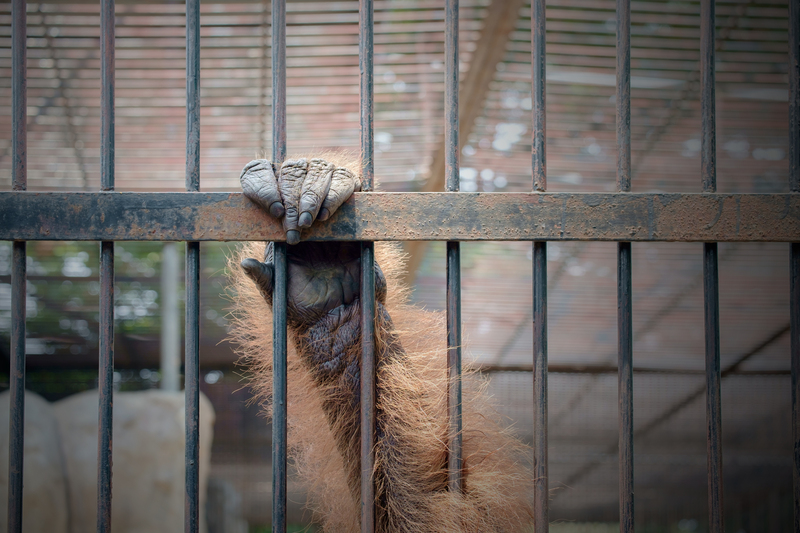Simplifying the Disposal of Your Plant Pots: The Ultimate Guide
Whether you are an enthusiastic gardener, a proud plant parent, or managing a commercial nursery, you've probably faced the challenge of disposing of plant pots responsibly. With environmental concerns at the forefront of daily life, making sustainable choices with your old, unused, or broken pots is more important (and easier) than ever. In this comprehensive guide, we'll explore eco-friendly, smart, and creative ways to simplify the disposal of your plant pots, keeping both convenience and sustainability in mind.
Why Proper Disposal of Plant Pots Matters
Plastic plant pots are a staple in the gardening world. While they serve their purpose by giving our beloved plants a home, they often become waste after single use. Improper disposal can harm the environment, clog landfills, and even impact wildlife. By simplifying the disposal process and adopting sustainable habits, each one of us can make a positive difference.
- Reduces landfill waste
- Prevents plastic pollution
- Supports recycling industries
- Encourages a circular economy
Understanding Different Types of Plant Pots
Before diving into disposal methods, it's helpful to identify the different kinds of plant pots:
- Plastic pots: Light, inexpensive, and most common, but challenging to recycle.
- Terracotta pots: Made from natural clay, porous, and biodegradable to an extent.
- Ceramic pots: Glazed or unglazed, decorative, and durable but hard to recycle via curbside programs.
- Biodegradable pots: Made from peat, coconut coir, or cardboard--these break down naturally.
Knowing your pot type lets you simplify disposal and choose the most eco-friendly option available.

Eco-Friendly Options for Disposing of Plant Pots
1. Reuse: Give Your Pots a Second Life
The easiest and most sustainable way to minimize waste is to reuse your plant pots. Here are some creative ideas:
- Repotting new plants: Clean old pots and use them for propagating new cuttings or seedlings.
- Organizing supplies: Use larger pots for gardening tools, markers, or outdoor storage.
- Craft projects: Paint and decorate, turning them into planters, storage, or unique gift containers.
- Seedling giveaways: If you're starting seeds, offer extra seedlings in recycled pots to friends or neighbors.
*Tip:* Before reusing pots, wash them with mild soap and water to remove any lingering pests or plant diseases.
2. Recycle: Navigating Plant Pot Recycling Programs
Plastic plant pots can pose a challenge for recycling programs, but many areas are improving their capabilities. Here's how to streamline the recycling process:
- Check local guidelines: Most municipal recycling centers only accept rigid plastics with specific resin identification codes (often #2 or #5). Plant pots made from polystyrene (#6) are rarely accepted.
- Clean thoroughly: Remove labels, soil, and plant debris before recycling.
- Garden centers and stores: Many retailers now offer take-back programs. Ask your local nursery, Home Depot, Lowe's, or garden center if they have a pot recycling drop-off bin.
- Special recycling drives: Community plant sales, Earth Day events, and master gardener programs sometimes collect used pots for recycling.
Pro tip: If in doubt, contact your recycling provider for specifics on which types of plastic pots are accepted, or use resources like Earth911 to find recycling options in your area.
3. Donate: Pass Your Pots On
Many organizations, community gardens, and schools accept donations of used plant pots. Your extra pots could support:
- School gardens and horticulture clubs
- Nonprofit urban farms
- Master Gardener programs
- Community gardens and cooperative projects
- Local plant swap or exchange events
How to Donate:
- Gather clean, undamaged pots (preferably sorted by size).
- Contact organizations directly--most share their needs on social media or community boards.
- Drop them off or arrange pickup as needed.
Note: Ceramic and terracotta pots are especially useful for decorative or indoor projects, while sturdy plastic pots are valued for propagation.
4. Upcycle: Get Creative with Old Plant Pots
If you're feeling crafty, upcycling plant pots breathes new life into old materials and adds personality to your home or garden. Here are some fun upcycle ideas:
- Fairy gardens: Use broken or chipped terracotta pots for whimsical, miniature garden scenes.
- Bird feeders: Flip plastic or ceramic pots into inexpensive bird feeders.
- Decorate indoor spaces: Spray paint or tile over old pots for use as decorative storage containers, fruit baskets, or vases.
- Outdoor lighting: Place solar lights inside upside-down plastic pots as garden lanterns.
Unleash your creativity and you'll discover that disposing of plant pots can also be a fun, family-friendly activity!
5. Compost or Return: Biodegradable Pots Disposal
Biodegradable plant pots (made of coir, pulp, or peat) make disposal a breeze. Simply plant them directly in the ground or compost bin--over time, these materials break down naturally, enriching the soil and minimizing waste.
- Check compostability: Ensure there are no plastic coatings before composting.
- No residue: Remove any synthetic labels or plastic hang tags first.
- Direct plant-in: Many biodegradable pots are designed to be planted directly with your seedlings, simplifying the process even more.

Tips for Responsible Plant Pot Disposal
- Keep pots clean and dry--this prevents contamination and improves chances of recycling or donation.
- Sort by material and size to streamline drop-offs and maximize reuse.
- Avoid burning plastic pots, as this releases toxic fumes and damages air quality.
- Stay informed--regulations and recycling facilities are changing rapidly. Check for updates in your city or region.
Frequently Asked Questions: Simplifying the Disposal of Your Plant Pots
-
Can I throw old plastic plant pots in the trash?
While it's tempting, avoid it if possible. Seek recycling programs, donation options, or upcycling ideas first to keep plastic out of landfills. -
Are colored plastic pots recyclable?
Some colored plastics, especially black, aren't recognized by recycling sorters. Always check with your local facility for guidance. -
Can I compost all biodegradable pots?
Yes, if they're free from plastic linings or synthetic additives. Otherwise, peel off outer layers before composting. -
What should I do with broken ceramic or terracotta pots?
Re-purpose them for garden mulch, drainage material, or creative projects like mosaics. -
How do garden centers reuse old pots?
Many nurseries sanitize pots and reuse them for seedlings or customer purchases, reducing the need for new plastic production.
The Future of Sustainable Plant Pot Disposal
As consumer awareness grows, the gardening industry is responding with better recycling programs, sponsorships, and innovative materials. More pots are now made from recycled plastic, compostable bioplastics, or even rice husks and bamboo. When you buy plants, look for eco-friendly packaging or pots that indicate clear end-of-life instructions.
Advocacy matters: By choosing plants in sustainable containers and inquiring about recycling at your local shops, you can drive change in your gardening community.
Conclusion: Make Plant Pot Disposal Easy and Sustainable
Simplifying the disposal of your plant pots isn't just about getting rid of clutter--it's an opportunity to make smart, eco-friendly choices that benefit your garden and the planet. Whether you reuse, recycle, donate, upcycle, or compost your pots, every action helps reduce waste and promote sustainability.
- Check local recycling programs for plastic pots
- Donate or pass along unwanted containers
- Repurpose and upcycle for creative projects
- Compost biodegradable pots whenever possible
The next time you find yourself surrounded by a stack of old plant pots, remember: There are simple and sustainable solutions waiting for you. By following these steps and sharing your knowledge with others, you can help grow a cleaner, greener gardening community for all.
Ready to simplify your plant pot disposal? Start today and make sustainability part of your gardening routine!